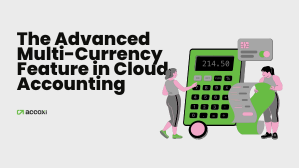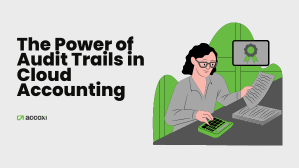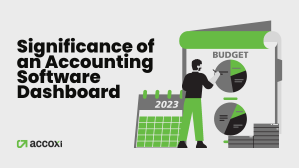

February 18, 2022

Managing cash flow is critical to determining the success of your eCommerce business.
Although you have record sales, if your customer acquisition costs and operating expenses outweigh your total sales, You are doomed to fail.
So, keeping in the loops of accounting basics in the eCommerce business can help you to stay in the field.
Irrespective of the platform you rely on for an eCommerce business, it is imperative that you have a system to manage your finances well. Let us examine some of the benefits you could get by going with a solid bookkeeping process.
Irrespective of the system you choose, it is inevitable to have a robust system to categorize your transaction and expenses.
An efficient bookkeeping process could enhance the success of your business. Normally, bookkeeping seems to be a complicated thing and if it turns out to be a simple task-it can save many costs with more productivity.
Being part of this bookkeeping process, you will also have resources at your disposal that assess your profitability in various aspects. It profoundly helps you to forecast and move unhindered in the future. Moreover, hitting payroll and saving money won’t be a herculean task as a clear-cut understanding is available with the bookkeeping process.
Eventually, your financial reports such as P&L, balance sheet, cash flow statements, etc are easily at your disposal to proceed with.
If you are complacent about your accounting, that may result in many problems.
The biggest problem is tax ramifications. So earlier tax planning is prudential as tax is a routine affair. It is hard to recall every minute details of taxes, expenditure, and spending, your accountant handled in the period of a financial year.
Here maximizing tax savings is an issue as time constraints come in the way.
Troubles with getting finance
Another is regarding inventory planning. If you are in need of finance, finance companies would approve your loan after thoroughly examining your records.
Cash Flowshortages & Competing price
Unwise assessment of your cash flow can indeed result in cash flow shortage and problems with payrolls. Competing on price is also considered to be another problem for eCommerce entrepreneurs.
An e-Commerce payment gateway is necessary to get paid as it is indeed a way to process credit card payments.
Not all payment gateways work for all eCommerce entities. So keep in mind whether the payment gateway is going in sync with the country where your business is registered. Secondly, be aware of the products you are selling as not all payment gateways work uniformly. Thirdly, Integration with your book-keeping process is also important.
Nowadays, choosing an eCommerce cloud-based accounting solution like Accoxi is inevitable for the success of your eCommerce transaction. It helps you to access your data anywhere, anytime.
In addition, it is more reliable and offers more accountability. Sales calculations are also easy with the help of cloud accounting software.
Things to be considered for choosing any cloud accounting software
Inventory management is a big challenge for eCommerce entities. It is to be ensured that stocks are there while excess is not there. So keeping a firm grip on the numbers of inventories are essential to decide upon how much inventory to buy and when too.
It is easy to overcomplicate the process. After having a word with the accountant, he categorizes it into the apt category or opens a new section for the sake of it. If you keep your chart of accounts on a consistent basis, the rest is easy. The volume is not herculean within your time.
Filing a tax-return can be confusing for both new and veteran eCommerce sellers. As an eCommerce entity, you need to register and collect sales tax anywhere you have nexus.
Since there is so much complexity, we recommend using software like Accoxi which can streamline this process.
A couple of things have to be considered if you decide to manage everything by yourself. Your accounting experience, budget, and time are the three main factors that determine whether managing yourself is the best approach.
But a few benefits are there if you outsource your accounting:
In fact, one of the most common areas where new e-Commerce founders face an obstacle is once they start hiring and paying employees. An experienced accountant can address these issues.
It is a nice idea to outsource bookkeeping and accounting as soon as you are able to.
Most eCommerce companies begin with hiring an accountant. This is a major step and can help you with tax planning and filing your taxes. If you notice that you spend most of the time on bookkeeping and other financial tasks, this is when it can be helpful to hire a bookkeeper or a productized bookkeeping service such as Accoxi.
The main advantage of hiring a bookkeeper is that they can get to know your business well and manage all of the day-to-day invoicing and bookkeeping tasks within your cloud accounting software.
When you look for a more turn-key solution, software such as Accoxi helps out. It is developed to manage all sorts of accounting and processing transactions accurately and consistently. It delivers customer excellence and is recognized as a prominent brand in the accounting space.
You might feel uncertain about the hiring process.
There is a big difference between the services that accountants and bookkeepers offer. Your needs will also vary depending on your own skills and the scope of the work your accountant finishes.
Whether you are hiring a freelance bookkeeper, bookkeeping productized service, or bringing someone in-house, here are some questions to ask to be considered.
Accounting questions and key concept eCommerce business owners need to know about
Before we go further, there are some key accounting concepts and terms that all eCommerce business owners should know.
The chart of accounts is a list of the individual accounts that make up a company’s transactions summary. It includes everything from assets and liabilities to your equity, revenue, and expenses.
With a chart of accounts, you can recognize all the money coming in and out of business, effectively handle your inventory, and maximize the selling profitability of your business.
There are two types of keeping a record of your business: cash-based or an accrual-based accounting system.
A cash-based accounting system lets you record sales and expenses as the funds land or leave your business bank account.
On contrary, an accrual-based accounting system is based on as the transaction took place, instead of when you received or paid cash.
It is highly recommended to have a word with your eCommerce accountant to propose which system to rely on.
Bank reconciliation is a process to assess what’s coming in and out of your business bank account and avert any irregularities between your bank reports and your accounting software records.
If you notice any discrepancies, you have to then proceed to make an adjustment to your software records. This helps you when it comes to tax time.
There are three reports that all founders have to examine on a regular basis to help them understand their numbers and make data-driven business decisions.
Profit and Loss (P&L) / Income Statement
A profit and loss statement (i.e. P&L) is your income statement. It denotes your business’s revenue, costs, and expenses at any given time.
Here are some things to keep tabs on:
The success rate on various sales channels
If you are extremely relying on one sales channel, you want to think about how you can diversify your sales and associated risks. If something alters within one platform, then your business doesn’t face a setback.
Trends
You’ll want to keep tabs on any sales and downward trends. It includes seasonality, big marketing strategies, inventory shortages, underperforming products, etc. Your P&L gives you the unique yardstick to review the financial outcome of those decisions you’ve made in the past.
Keep tabs on expenses
If you notice that you spent money on SaaS software or office supplies one quarter, you want to make sure that you are actually using it. This allows you to be more prudential about your spending.
Balance Sheet
A balance sheet is simply what you own (i.e. assets) v. what you owe (i.e liabilities). This allows you to see how you progress in your business.
Cash flow forecast
A Cash Flow forecast allows you to think out of the box like an investor. This report is similar to GPS tracking, allowing you to see if your business is moving in the right direction.
Ecommerce accounting key takeaways
In a nutshell, a proper accounting system could help grow and enhance your business. Some key things to be followed are:


